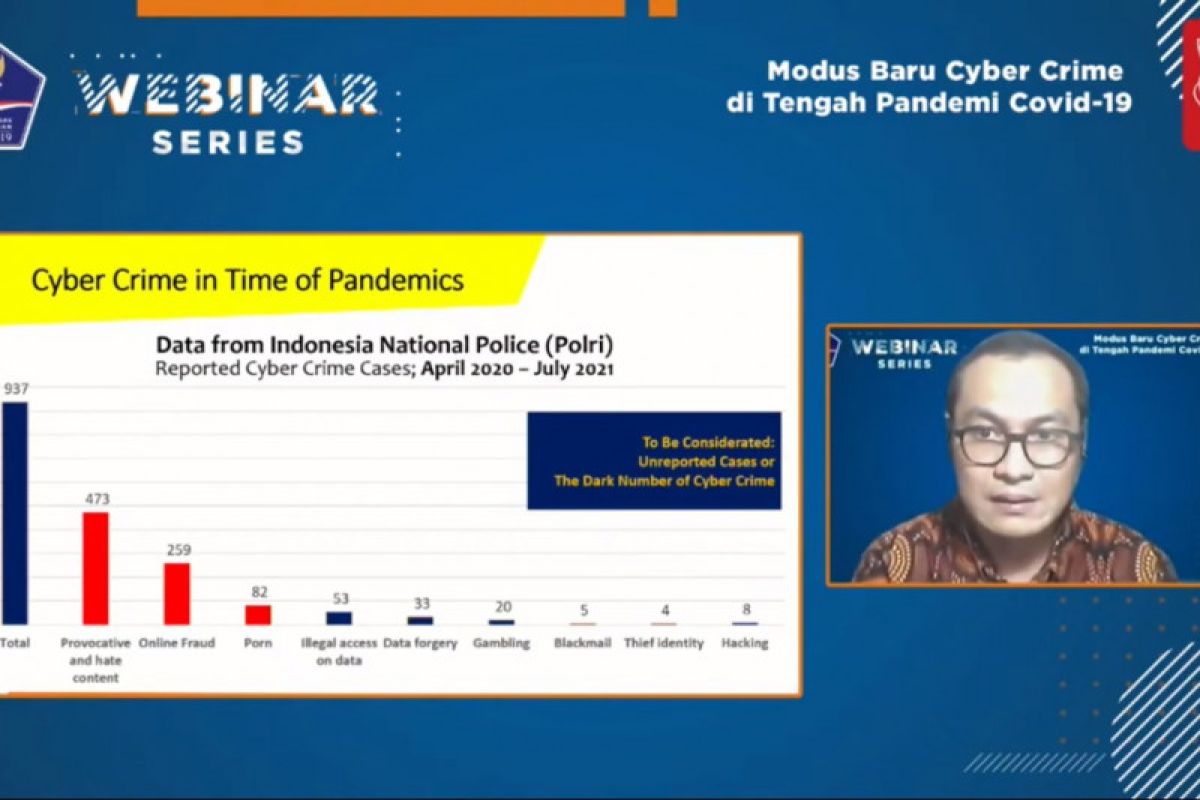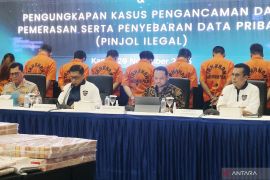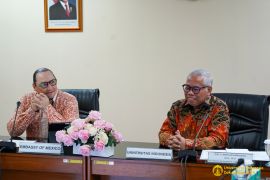"This is something that must be watched out for, considering that these crimes are being committed on a massive scale," he noted in his statement on Friday.
Nugroho drew attention to this worrisome trend during a webinar titled "New Mode of Cyber Crime in the Midst of the COVID-19 Pandemic" organized by the COVID-19 Task Force along with the National Disaster Management Agency (BNPB).
Cybercrime is any illegal activity conducted by criminals using computer network information system technology that directly attacks the victim's information system technology. However, more broadly, cybercrimes can be defined as illegal acts that are supported by computer technology.
"The target of the perpetrator is the device or hardware or software or personal data of the victim. The nature of cybercrime is that both the perpetrator and the victim are invisible, thereby making it so complex. Potential perpetrators of this type of cybercrime can be from a geological group or a group that does business illegally and certain individuals," he expounded.
Related news: Police issues telegram to thwart cybercrimes during COVID-19 pandemic
According to Nugroho, the anonymity offered by the internet benefits perpetrators, thereby making it easier for them to hide their identities. Moreover, upon committing the crime, there is a time frame in which the perpetrator could erase the evidence in order to hinder or halt the authorities' efforts.
There has been an annual increase in the number of internet users in Indonesia and all over the world. The COVID-19 pandemic has impacted the lifestyle of Indonesians, who tend to rely more on the internet. While the internet has its own pros, some people use it as a tool to harm others.
According to the Police Force’s data from April 2020 to July 2021, at least 937 cases were reported out of which 473 cases involved provocation, hate content, and hate speech; followed by 259 cases of online fraud; and 82 cases of pornographic content.
"Then why is the number of cases of provocation, hate content, and hate speech the highest. It is influenced by political factors in Indonesia, with the recently held regional and national elections that resulted in polarization in society. This has been carried forward to this day when the pandemic struck. Indonesians should unite to fight this pandemic, but instead, they fight and blame each other," Nugroho elaborated.
He confirmed that the police had arrested perpetrators, who spread hoax information about the COVID-19 pandemic.
Nugroho pointed out that these perpetrators capitalized on the vulnerability, powerlessness, and limitations of society during the COVID-19 pandemic. Related news: MP urges police to prioritize public service, protection amid COVID-19
Translator: Feru Lantara, Mecca Yumna
Editor: Rahmad Nasution
Copyright © ANTARA 2021












